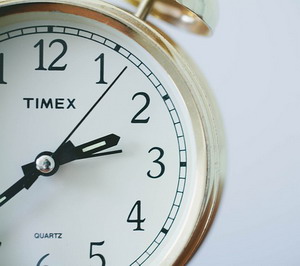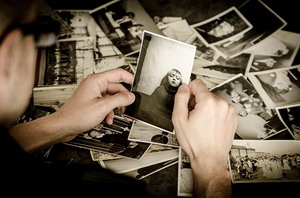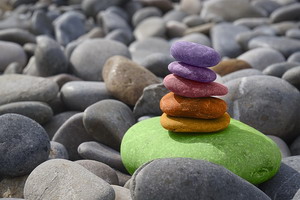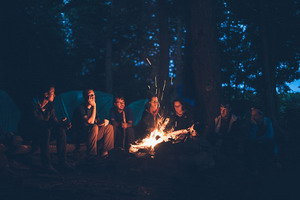What is nicer than a really good night’s sleep? It is so lovely to wake up all bright and ready for a new day. And how about those wonderful dreams that you just barely remember as you are waking up and then they quickly slip away? Yes, a good night’s sleep is truly grand. The problem is most of us are not getting the good night’s sleep we need.
This lack of good quality sleep is far more relevant to us than just missing out on that lovely feeling in the morning after a good sleep. We all know we need our sleep, but do you know why? And what happens to us when we don’t get our beauty sleep?

Our body has its own internal clock that runs things. Every organ and gland in our body has its own timing for when it is supposed to do what it does. For instance an important organ used for digestion, like our pancreas, is functioning at it’s best around 2 in the afternoon. Our ability to digest protein and complex carbohydrate foods steadily decreases as the day progresses after 2 pm. That is why the later in the day you eat, the harder it is for you to digest your food and the more likely it is that you will gain unwanted weight. Poorly digested food creates more gut inflammation and that generates abdominal weight gain.
An easy way to measure your internal clock timing has to do with the pituitary gland output of growth hormone. Growth hormone is the hormone that basically keeps you young by promoting the growth and repair of your body. Well, it is released in short bursts in response to various stimuli like heavy exercise or fasting. But on a regular basis it is released in a burst about 1 hour after you go to sleep each night. Once your body really believes you are down for the night, it pumps out growth hormone which stimulates the repair crews in your body to do their job. If you are restless and can’t fall deeply asleep, you get no growth hormone and therefore no renewal and repair. In short, you age faster. An interesting aside – sugar consumption (high blood sugar) suppresses growth hormone.

Sleep time is part of this whole timing thing in a big way. Lots of important stuff for our health happens while we sleep that does not happen while we are awake, like the body repair crews. What else happens? Memory. During the day everything you experience and learn just sort of hangs out in a limbo space between short term memory and long term memory. Those experiences get consolidated and transcribed into your long term memory while you sleep. This has been shown over and over with kids in school. If you are studying for an exam, your ability to remember the material is much greater if you are able to get a good night’s sleep before the exam rather than staying up all night reviewing the material. This is why lack of good quality sleep is a major cause of neurological problems like depression, dementia, and Alzheimer’s.
Lack of sleep turns on genes that trigger inflammation and crank up the excitability of your immune system. Ultimately this leads to metabolic disease like diabetes and cancer, and the whole host of autoimmune conditions including things you wouldn’t think of like osteoporosis and artery disease. Sleep is essential for the proper re-balancing of neurotransmitters in your brain and gut. This is obvious in the short run when they do sleep deprivation studies in the effort to produce perpetual soldiers. Even after missing even one day of sleep, the brain always starts to get really cranky and wacky to the point that after a couple days hallucinations and schizophrenic behavior results.

This same mental imbalance results on a smaller scale when we miss even one hour of regular sleep. When this happens regularly, the effect multiplies and we end up having perpetually bad days. Our brains simply can’t focus and maintain a healthy balance with life if we are short on sleep. Studies have shown that we are most productive during the first 2 ½ hours after we get up. Thus 80% of our daily productivity and creativity happens in this first 2 ½ hours. It is all downhill from there, but a short nap can restart this cycle and get you another burst of creative productivity. Forward thinking corporations are now providing nap rooms for their creative staff in order to get more and better production out of them. Play has a similar rejuvenating effect, so companies like Google provide play spaces for their employees. They have figured out that the old saying “all work and no play makes Jack a dull boy” directly affects their bottom line.
Good quality sleep is really important. Yet the CDC says we are in the midst of a sleep deprivation epidemic. Hardly anyone is getting the sleep they need. Why is that?

Part of the problem is that we just simply work too much. I remember when I was a kid the glowing prediction was that the age of automation would remove the need for us to do the drudgery of daily work. It was expected that the average worker would only work a 20 hour week by the turn of the century. The exact opposite has happened. Sixty hour workweeks are becoming normal. The net result is less sleep. We keep trying to pack more and more into the same 24 hour day. I didn’t have to spend hours a day checking my emails and reading blogs and news feeds when I was young.
There are more insidious reasons why we are not getting the quality sleep we need. Remember that internal biological clock I mentioned earlier that runs everything? That clock is tied to the sun. That clock is controlled by the color of the wavelengths of sunlight as they change through the day. Early morning starts with a dominance of the blue wavelengths and shifts into the orange and red wavelengths toward the end of the day. This color shift is picked up by our eyes and registered by a special area in your brain – the suprachiasmatic nucleus. This is where your master clock lives. If you are exposed to the wrong colors of light at the wrong times of the day, things go haywire. Just getting exposed to any light at all when your brain thinks it should be dark and you should be asleep will mess it up. So shift work really does a number on your brain, as does lights being on a night.

Think about when you went camping as a kid. When it got dark you might have sat around a warm orange-red campfire for a bit and then you went off to bed. This is how humanity lived forever. Suddenly in the last hundred years there are lights on all the time in the city. They are so bright you can’t even see the stars. Even worse is over the last 20 or so years we have become addicted to looking at big screen televisions and computer and phone screens that blast out those blue wavelengths of light that our brain says should only be around in the morning. These stimulate our brain and wake it up just when we should be winding down and getting ready for sleep. Then there is the whole story about the inflammatory foods that poison our gut and inflame our brains, so they are no longer able to self regulate and calm down for proper sleep anyway. Our modern lifestyle has put us in a car headed straight for a brick wall and everything we do is just pushing down on the gas pedal harder.
What can we do? How can we make sleep a priority?
Wind down in the evening

– Stop eating at least 3 hours before bedtime.
– Stop TV, computer, and phone 1- 2 hours before bed
– Turn down the lights in the evening (or wear blue blocker glasses)
– Cool down – you sleep better when you are cool
– Resolve/release conflicts and mentally let go of the day
– Connect – human connection puts the mind at ease
– Have a comfy place to sleep that feels good
– Sleep in complete darkness – no nightlights
